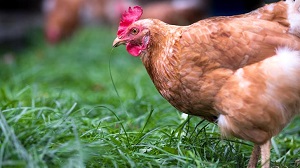Article as seen in the November edition of Money magazine by Susan Hely.
Questions: What is the smartest way forward financially for us given that Clare will not be working for some time? Should we invest in shares, buy an investment property or focus on paying down the mortgage? What is the best way to buy land, build a house and set up a hobby farm?
Names: Clare and Michael
Status: Married and expecting a baby.
Learn all you can about farming, says Charlie Roberts, owner and manager of Farmstyle, an information resource for people who want to change lifestyles and learn to farm. He has a bachelor of farm management and a masters in business administration.
The first step for Clare and Michael when buying a small farm is to have a clear understanding of why they are purchasing it and how they would like it to look.
It’s great that they have the goal of the farm being self-sufficient and possibility of it producing a small supplementary income.
These are the purchasing tips they should consider:
* Use a reputable agent.
* Check planning restrictions and legal responsibilities.
* Inspect farm infrastructure.
* Check access to markets and services.
* Understand land and water.
* Consider weeds and pests.
* Assess natural resources.
* Meet the neighbours and assess any land use impacts.
* Be realistic about farm skills and knowledge.
There has been a growing trend in recent times for people to reconnect with the land, with the reason for small farm purchases ranging from a retreat, a weekender, a hobby farm, a conservation or self-sufficiency block, an investment or a working farm.
Land prices for small and lifestyle farms are often disconnected from those for larger farming land as they are highly sought after and are often located within close proximity to larger regional cities.
With larger farm returns averaging only 1%-4% a year (excluding capital appreciation) it is unrealistic (although not impossible) to expect your hobby farm to generate enough money to pay for the land, let alone the house and other farm improvements. That said, it is still possible to have a rewarding, self-sufficient lifestyle.

If self-sufficiency is the main goal, it will be essential that any crops or livestock being produced match the farm’s resources (water, soil, climate, vegetation).
To become self-sufficient and produce a range of farm produce for consumption, Clare and Michael will need to enhance their farming skills and knowledge.
Time spent with neighbours or on local working farms can be a great way to increase this knowledge base. The farm purchase is long term so they have time on their side. For Clare and Michael clearly assessing the farm’s physical resources as well as their own skills and knowledge will be important when deciding if this mix is capable of achieving their desired self-sufficient goals.
If the farm is to produce a small supplementary income and to help cover fixed expenses such as rates/insurance, an intensive enterprise that value adds and sells its product direct to consumers – such as flowers, chickens and fruit – can be viable option.
Before you select an enterprise ensure it is something you are passionate about, as you will always put more effort into something that you enjoy doing and it is more likely to succeed.
Just like any other business, it will require commitment, time and money to make it a success.
Farmstyle is an online community for small and hobby farmers to learn everything about farming and country living. We have moderated forums and friendly discussion groups where users can ask questions of our farming experts and interact with other like-minded hobby farmers. We also offer on-farm consulting, including pre-purchase inspections, helping purchasers avoid costly mistakes.
For the complete article visit Ask the Experts: How can we afford our dream of owning a hobby farm?



